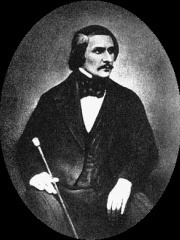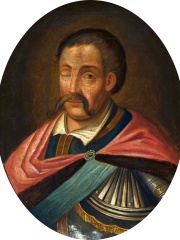 Velyki Sorochyntsi
Velyki Sorochyntsi
Velyki Sorochyntsi ranks 7,415th in number of biographies on Pantheon, behind Dravograd, Thiruvarur, and Šternberk. The most famous people from Velyki Sorochyntsi are Nikolai Gogol, and Danylo Apostol. The most famous people who died in Velyki Sorochyntsi are Danylo Apostol. Velyki Sorochyntsi has been the birth place of many writers, and military personnels and the death place of many military personnels. Velyki Sorochyntsi is located in Ukraine.
Velyki Sorochyntsi is a village in Myrhorod Raion, Poltava Oblast, central Ukraine. It formerly had town status. It hosts the administration of Velyki Sorochyntsi rural hromada, one of the hromadas of Ukraine. The village is famous as the birthplace of the writer Nikolai Gogol and the location of the Sorochyntsi Fair. In 1925–1931, the town was called Neronovychi after the Bolshevik activist Yevhen Neronovych, who was executed by Ukrainian military forces in the town in 1918. Read more on Wikipedia
People
Between 1654 and 1809, Velyki Sorochyntsi was the birth place of 2 globally memorable people, including Nikolai Gogol, and Danylo Apostol. Additionaly, 1 globally memorable people have passed away in Velyki Sorochyntsi including Danylo Apostol.
People Born in Velyki Sorochyntsi
Go to all RankingsNikolai Gogol
WRITER
1809 - 1852
HPI: 82.82
Rank: 1
Danylo Apostol
MILITARY PERSONNEL
1654 - 1734
HPI: 61.62
Rank: 2
People Deceased in Velyki Sorochyntsi
Go to all RankingsOccupations
Most individuals born in present day Velyki Sorochyntsi were writers (1), and military personnels (1), while most who died were military personnels (1).
Occupational Trends
Throughout history writers have been the profession with the most memorable people born in present day Velyki Sorochyntsi, including Nikolai Gogol.
Places
Overlapping Lives
Below is a visual represetation of the lifespans of the top 1 globally memorable people born in Velyki Sorochyntsi since 1700.


